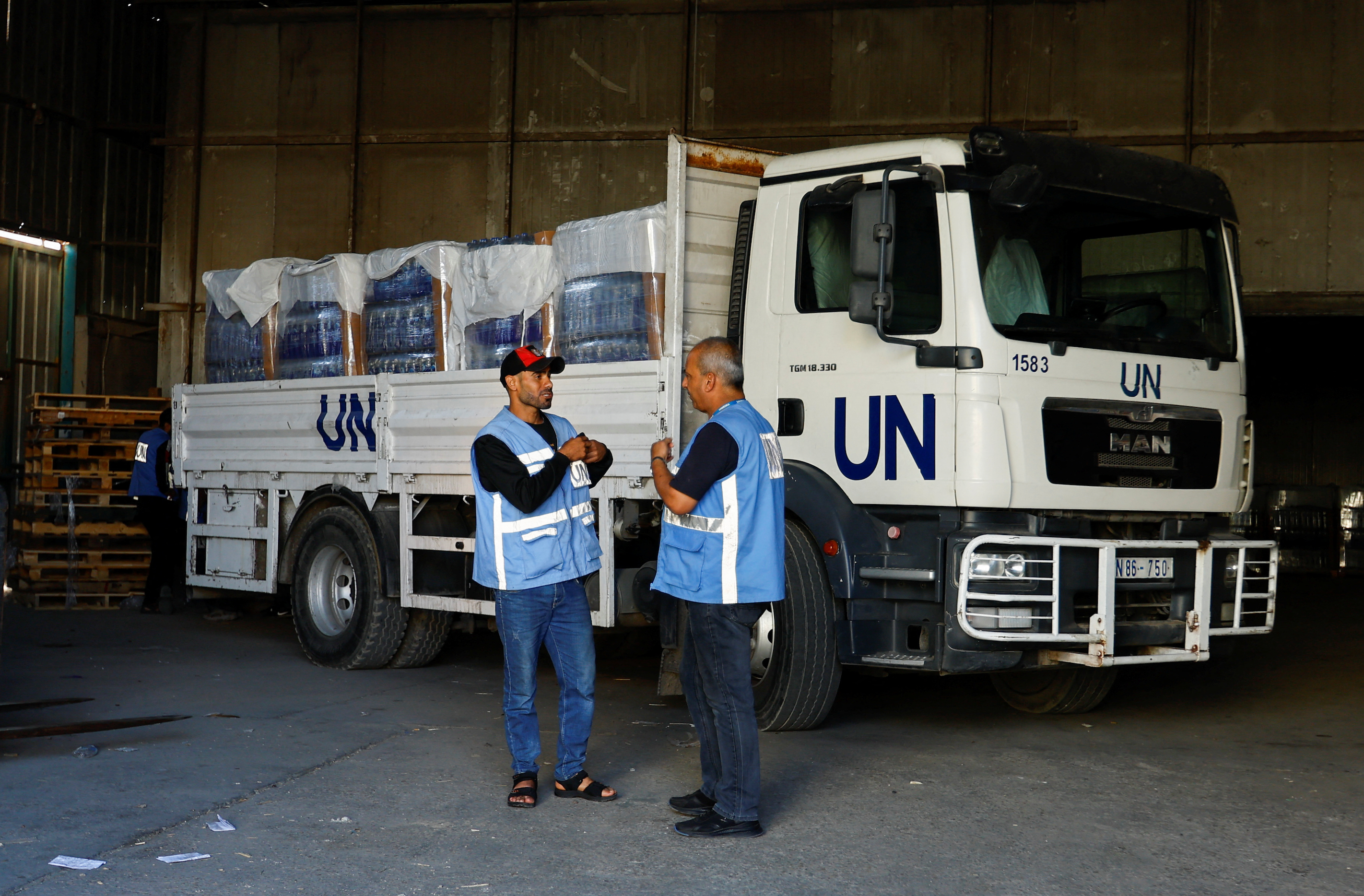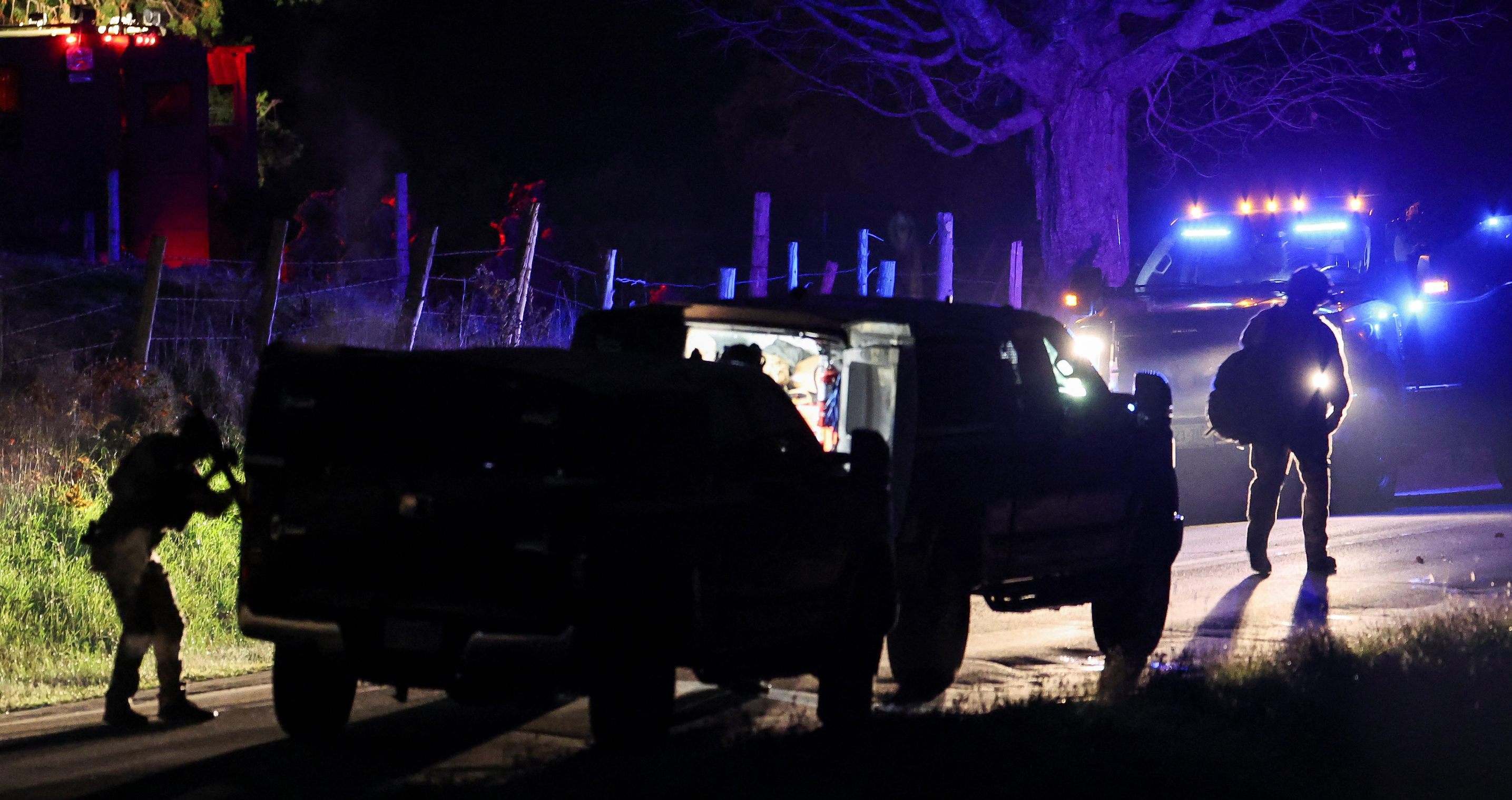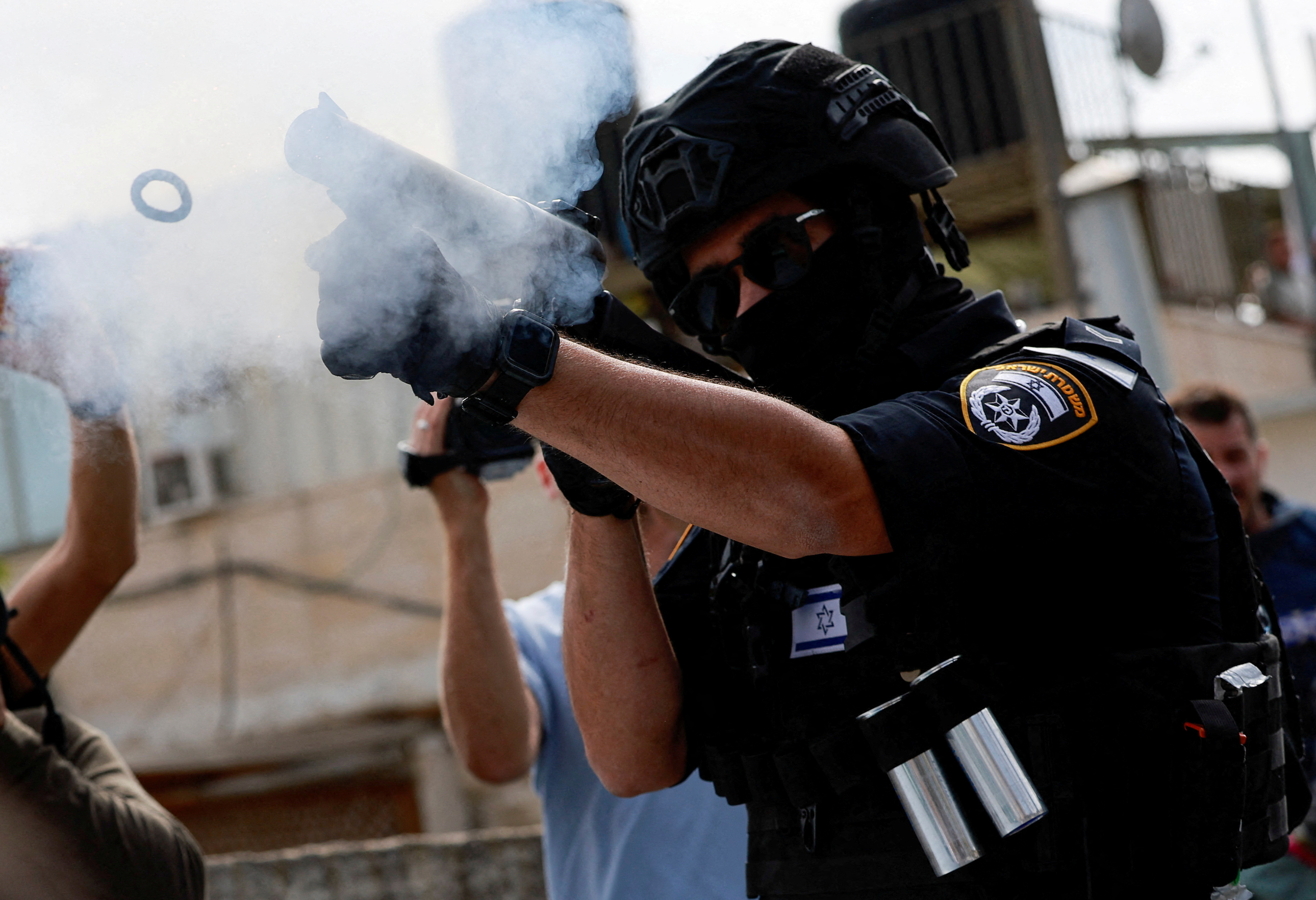
Medical team and aid trucks enter Gaza via Rafah crossing, official says
PHOTO CAPTION: Workers stand by a United Nations vehicle, while sorting aid to be distributed to Palestinians, as the conflict between Israel and Palestinian Islamist group Hamas continues, at a United Nations-run facility, in Khan Younis in the southern Gaza Strip, October 26, 2023. REUTERS/Ibraheem Abu Mustafa
GAZA (Reuters) -A medical team and 10 aid trucks entered the Gaza Strip on Friday via the Rafah crossing with Egypt, carrying water, food and medicine, a Palestinian border official told Reuters.
"This Friday morning, a medical delegation consisting of 10 foreign doctors entered, in addition to 10 trucks entering the Gaza Strip through the Rafah land crossing, carrying water, food and medicine, bringing the total number of trucks since the beginning of the war to only 84 trucks," the official said.
Detailed negotiations were taking place with Israel in a bid to secure more humanitarian crossings into the Israeli-besieged enclave, Lynn Hastings, U.N. Humanitarian Coordinator for the Occupied Palestinian Territory, told a press briefing in Geneva.
"In addition to the technical issues and the security issues, there are political issues as well," Hastings said. "And there's a certain amount of pressure on the government of Israel in terms of its domestic politics."
Gaza has been hit by unrelenting Israeli air strikes in response to the cross-border attack by Hamas gunmen into southern Israel on Oct. 7. Israel says Hamas killed some 1,400 people. The Hamas-controlled Gaza health ministry say more than 7,000 Palestinians have been killed in the air strikes.
There is still no agreement to get fuel into Gaza, and the U.N. Palestinian refugee agency has said the absence of fuel was jeopardising life-saving humanitarian operations there.
The World Food Programme said at the same U.N. briefing that 21 of 23 bakeries it worked with in Gaza have had to shut due to fuel shortages.
"People are risking their lives and queuing for hours to secure bread and many are going back to their shelter with no bread in their hands," said Samer AbdelJaber, WFP representative in Jerusalem. "We cannot sit and wait for people to starve."
Officials are also grappling with the issue of deciding how to distribute the scant aid.
"We are aware of the 1,000 patients that require dialysis and over 100 children and babies that are in incubators, so we do our best to try and make the prioritisation in accordance with the greatest needs," Hastings said.
Already, 12 hospitals or about a third of the total in Gaza have shut down due to damage or lack of fuel, the U.N. humanitarian office said on Friday. Others have also become shelters for tens of thousands of people who have fled their homes as they seek safety from bombings.
The World Health Organization's Richard Peeperkorn described scenes of patients being operated on in hospital corridors without anaesthetics and medical supplies being "ripped off" delivery trucks. "(The doctors) have never seen the scenes before in all their lives," he told the briefing from Jerusalem.
(Reporting by Gabrielle Tétrault-Farber, Emma Farge and Nidal Al-Mughrabi; Editing by Friederike Heine, Miranda Murray and Mike Harrison)









